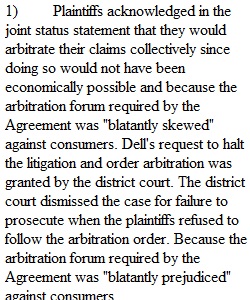


Q The purpose of this Case Study Analysis is to understand the fundamental elements and enforceability of online contracts. Instructions: Review Case #5.3 in your text. At the end of each case there are questions, for each question include: a. The general answer to the question b. Identify the relevant statutes/legal doctrines/Federal acts or laws that are demonstrated. *Note that these can be from this chapter or previous chapters* c. Fully define the relevant statutes/legal doctrines/Federal acts or laws that are demonstrated. d. Explain how they apply and what it means for future cases of a similar nature. Submission Instructions: • Submit your case as a WORD document in the drop box for that assignment. (Properly formatted in MLA) Grading Criteria: • Refer to the grading Rubric for case analyses for additional guidance. • Worth 2 Points Due Sunday by 11:59pm EST.
View Related Questions